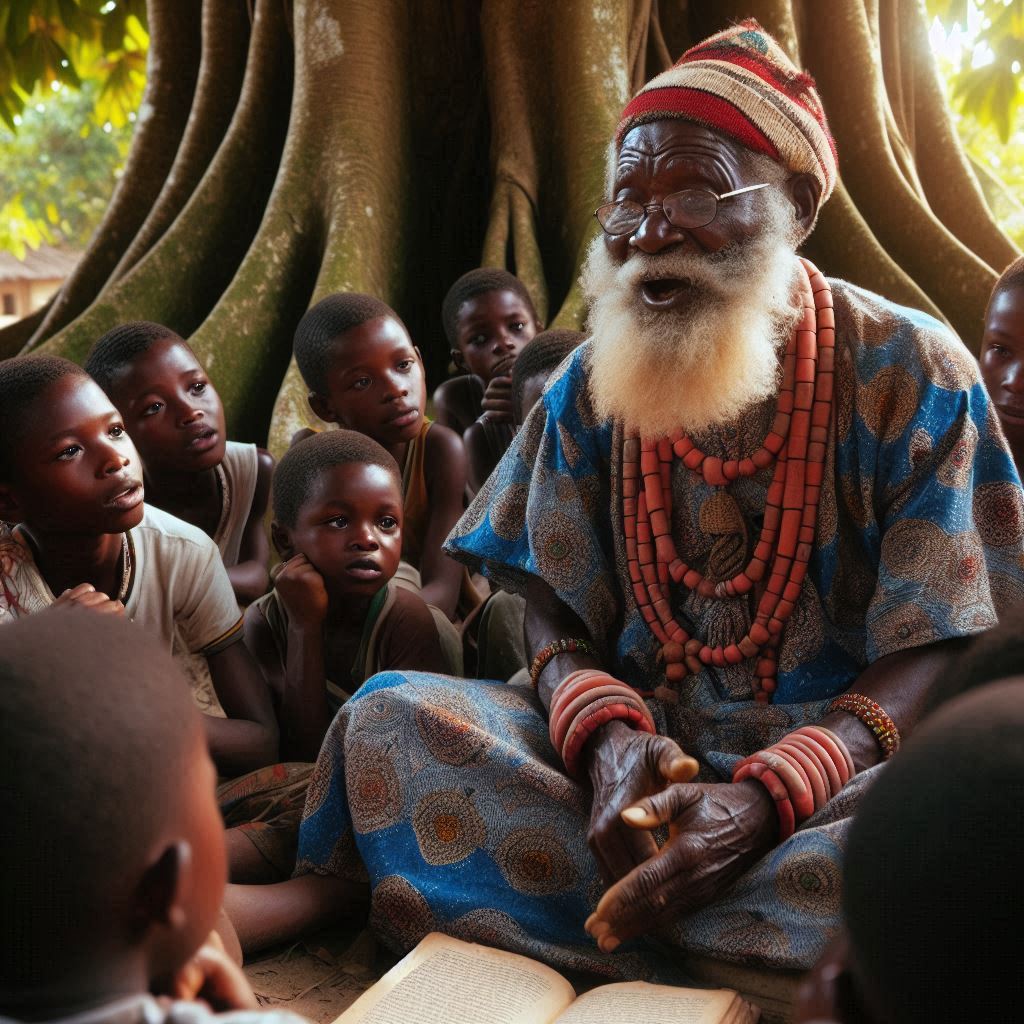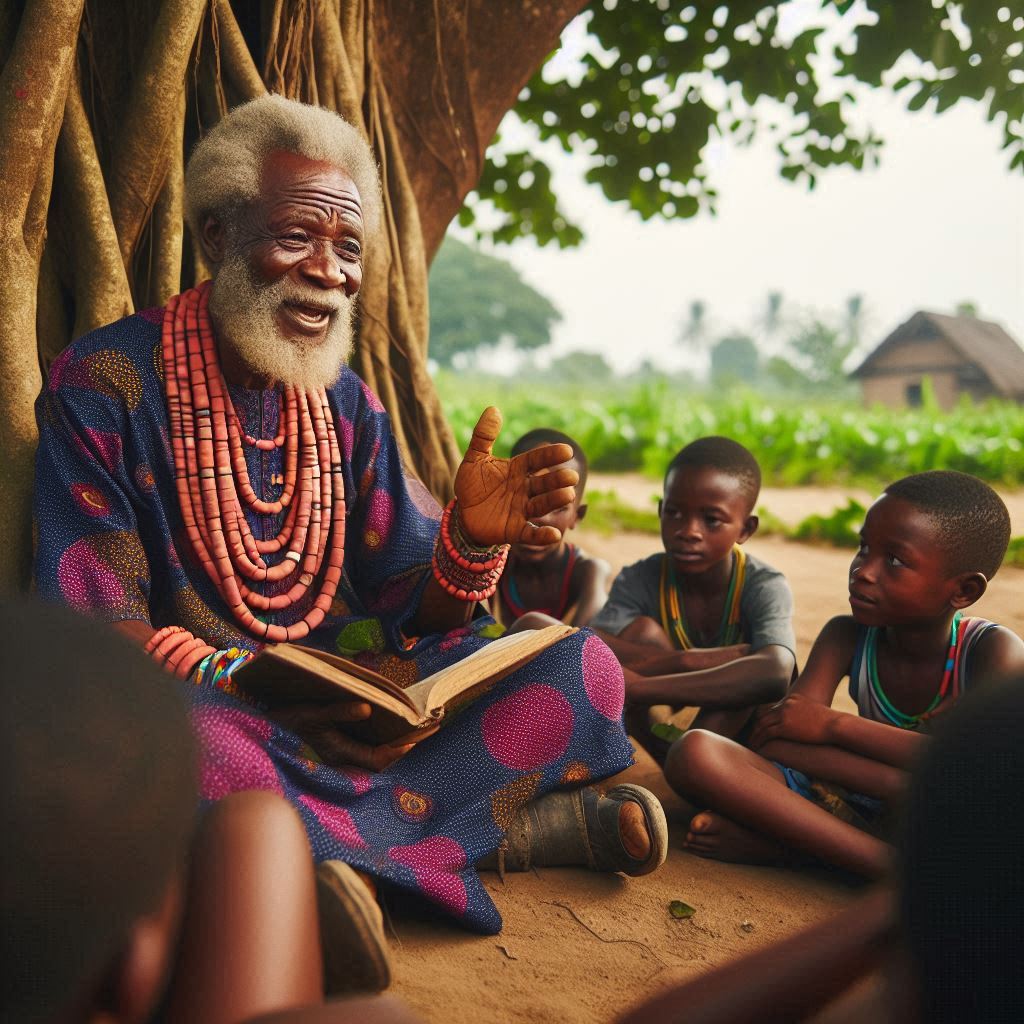Introduction
Globalization, the process of increasing interconnectedness among countries, profoundly affects cultures worldwide. Nigerian languages, rich in diversity, face unique challenges in the era of globalization.
Globalization encompasses the flow of goods, services, ideas, and cultures across borders. It accelerates due to advances in technology and communication, shrinking the world into a global village.
Impact on Cultures
Cultural globalization entails the spread of cultural elements worldwide. This includes language, traditions, music, cuisine, and values. While globalization offers opportunities for cultural exchange, it also poses threats to linguistic diversity.
The Importance of Discussing Nigerian Languages
Nigeria, with over 500 languages, boasts one of the highest linguistic diversities globally. Each language encapsulates a unique heritage, identity, and worldview. However, globalization poses challenges to the preservation and promotion of these languages.
Preservation of Linguistic Diversity
Globalization often leads to the dominance of a few languages, primarily English, as a lingua franca in various domains such as business, education, and media. This dominance threatens the vitality of indigenous Nigerian languages.
Threats to Nigerian Languages
The influence of global languages marginalizes indigenous languages, leading to language shift and, ultimately, language loss.
Younger generations may prioritize learning global languages over their native tongues, resulting in intergenerational language transmission gaps.
Erosion of Cultural Identity
Language serves as a vessel for transmitting cultural values, beliefs, and traditions. The erosion of indigenous languages due to globalization undermines cultural identity and cohesion within Nigerian communities.
Globalization’s impact on education reinforces the primacy of global languages in academic settings. Limited resources, inadequate language policies, and a lack of institutional support hinder efforts to teach and preserve Nigerian languages.
Opportunities for Language Revitalization
Despite these challenges, globalization also presents opportunities for revitalizing Nigerian languages. Digital platforms, social media, and online communities provide avenues for language promotion, documentation, and preservation.
Generally, globalization exerts both positive and negative influences on Nigerian languages. While it facilitates cultural exchange, it also poses threats to linguistic diversity and cultural heritage.
Recognizing the importance of preserving and promoting Nigerian languages is crucial for maintaining cultural identity and fostering inclusivity in a globalized world.
With careful attention and concerted efforts, Nigerian languages can thrive alongside global languages, enriching the cultural tapestry of the nation.
Historical background of Nigerian languages
Overview of the diverse languages spoken in Nigeria
Nigeria is a country known for its linguistic diversity, with over 520 languages spoken within its borders.
These languages can be grouped into three major language families: the Niger-Congo, Nilo-Saharan, and Afro-Asiatic families.
The Niger-Congo family is the largest, accounting for the majority of languages spoken in Nigeria, including Yoruba, Igbo, and Hausa.
Each of these language groups has its distinct dialects and variations, reflecting the rich cultural heritage of Nigeria.
Importance of language in preserving cultural heritage
Language plays a crucial role in preserving cultural heritage by passing down traditions, stories, and values from one generation to the next.
Through language, people are able to communicate their history, beliefs, and customs, maintaining a sense of identity and community.
In Nigeria, language is deeply intertwined with cultural practices, rituals, and ceremonies, serving as a means of connection and belonging for its diverse population.
Preserving Nigerian languages is essential for safeguarding the unique heritage and diversity of the country.
Influence of colonialism on Nigerian languages
Colonialism has had a significant impact on Nigerian languages, leading to the marginalization and decline of many indigenous languages.
During the colonial era, European powers imposed their languages, such as English, French, and Portuguese, as official languages of administration and education.
This has resulted in the dominance of colonial languages in various sectors of Nigerian society, displacing and sometimes erasing indigenous languages.
As a consequence, many Nigerian languages are endangered or facing extinction, as younger generations prioritize learning foreign languages over their native tongues.
Efforts are being made to revitalize and preserve endangered languages in Nigeria, but the legacy of colonialism continues to influence language dynamics in the country.
Read: How Nigerian Schools Address Student Psychology
Globalization and Nigerian Languages
Globalization has undeniably transformed societies worldwide, and Nigeria is no exception.
In this section, we delve into the profound impact of globalization on Nigerian languages, examining the shifts in language dynamics, societal structures, and cultural identity.
Increased Exposure to Foreign Languages
In the wake of globalization, Nigerian society has experienced an unprecedented influx of foreign languages.
Through media platforms, technological advancements, and educational systems, exposure to languages such as English, French, and Mandarin has become pervasive.
This exposure extends beyond mere linguistic encounters, influencing cultural practices, societal norms, and economic interactions.
As Nigerians engage with a globalized world, the boundaries between local languages and international tongues blur, leading to a complex linguistic landscape.
Adoption of English as the Official Language
One of the most significant consequences of globalization on Nigerian languages is the widespread adoption of English as the official language. Stemming from colonial legacies, English serves as a unifying force in a nation characterized by linguistic diversity.
The dominance of English permeates various spheres of Nigerian life, from government proceedings and legal documentation to educational curricula and business transactions.
While facilitating communication on a global scale, this linguistic hegemony poses challenges to the vitality and autonomy of indigenous languages.
Decline in Usage and Preservation of Indigenous Languages
As English asserts its supremacy, indigenous Nigerian languages face a precarious future. The pervasive influence of globalization accelerates the decline in the usage and preservation of these linguistic heritages.
Within urban centers and cosmopolitan hubs, indigenous languages often yield to the pragmatic utility of English, relegating them to informal settings and familial domains.
With each generation, the fluency and proficiency in native languages diminish, exacerbating the threat of linguistic extinction.
Navigating Linguistic Diversity in a Globalized World
In summary, the impact of globalization on Nigerian languages is multifaceted, encompassing both opportunities and challenges.
While increased exposure to foreign languages fosters global connectivity and cultural exchange, it also poses a formidable threat to the richness and diversity of indigenous linguistic traditions.
As Nigeria navigates the complexities of globalization, efforts to promote linguistic diversity and preserve indigenous languages become imperative.
Through proactive measures such as language revitalization initiatives, educational reforms, and community engagement, Nigerian society can uphold its linguistic heritage while embracing the benefits of a globalized world.
In essence, the discourse surrounding the intersection of globalization and Nigerian languages underscores the delicate balance between cultural authenticity and global integration in the 21st century.
Read: Understanding Mental Health Laws in Nigeria
Economic Impact of Globalization on Nigerian Languages
Globalization has profoundly influenced Nigerian languages, particularly in the economic sphere.
Importance of Language in Commerce and Trade
In commerce and trade, language serves as a crucial tool for communication and negotiation.
Effective communication in business transactions requires a common language between parties involved.
Local languages are essential for connecting with indigenous communities and understanding their needs.
Transform Your Career with Expert Guidance
Get personalized mentorship consulting that’s tailored to your unique path. Our expert advice is actionable and exclusive.
Get StartedHowever, the dominance of English in global trade has marginalized indigenous languages in Nigeria.
Use of English as a Medium for Business Transactions
English has become the primary medium for conducting business transactions in Nigeria.
Proficiency in English is often a requirement for participation in the global market economy.
English proficiency opens doors to international trade, investment, and employment opportunities.
As a result, Nigerian businesses prioritize English language skills in their workforce.
Limited Opportunities for Speakers of Indigenous Languages in the Global Market
Speakers of indigenous Nigerian languages face limited opportunities in the global market.
The dominance of English marginalizes indigenous languages, limiting their utility in international trade.
Indigenous language speakers encounter barriers to entry in global trade due to language limitations.
This linguistic disadvantage hampers their ability to compete effectively in the global marketplace.
In a nutshell, globalization has had a significant economic impact on Nigerian languages.
While English proficiency is essential for participation in the global economy, it has contributed to the marginalization of indigenous languages.
Efforts to promote linguistic diversity and preserve indigenous languages are crucial for inclusive economic development in Nigeria.
Read: Renowned Nigerian Psychologists to Follow

Social and cultural impact of globalization on Nigerian languages
Globalization has significantly influenced the social and cultural landscape of Nigeria, including its diverse languages.
The impact of globalization on Nigerian languages can be seen through various avenues, including social interactions, cultural practices, and the transmission of traditional knowledge.
Shift towards a more Westernized culture and lifestyle
One of the key social impacts of globalization on Nigerian languages is the shift towards a more westernized culture and lifestyle.
Western values, norms, and ideologies have been increasingly adopted by Nigerian society, leading to a blending of cultures and languages.
This has resulted in the widespread use of English as a dominant language in various spheres of life, including education, business, and media.
Loss of traditional values and beliefs associated with Indigenous languages
Globalization has also contributed to the erosion of traditional values and beliefs that are closely tied to Nigerian indigenous languages.
As Western culture becomes more prevalent, there is a gradual decline in the use and preservation of native languages, along with the customs and traditions that are passed down through these languages.
This loss of linguistic diversity can weaken cultural heritage and identity, as language is a fundamental aspect of a community’s history and traditions.
Challenge of maintaining cultural identity through language preservation efforts
The challenge of maintaining cultural identity through language preservation efforts has become increasingly prevalent in Nigeria.
As globalization continues to influence social and cultural practices, there is a growing need to preserve and promote indigenous languages as a way to safeguard cultural identity.
Efforts such as language revitalization programs, cultural events, and educational initiatives play a crucial role in preserving Nigerian languages and ensuring that they remain a vital part of the country’s cultural fabric.
In essence, the social and cultural impact of globalization on Nigerian languages is profound and multifaceted.
While globalization has brought about certain benefits in terms of increased connectivity and access to global markets, it has also raised concerns about the preservation of linguistic diversity and cultural heritage.
As Nigeria navigates the challenges of globalization, it is essential to prioritize the preservation and promotion of indigenous languages as a means of maintaining cultural identity and fostering a sense of pride in linguistic diversity.
Read: Impact of Christian Religious Studies on Nigerian Society
Educational implications of globalization on Nigerian languages
One of the key impacts of globalization on Nigerian languages is the emphasis on English language proficiency in schools. The globalized world requires individuals to be fluent in English to compete in various fields.
Unfortunately, this emphasis on English has led to the neglect of indigenous languages in the education system.
Many schools prioritize teaching English over local languages, leading to a decline in the use and preservation of native tongues.
Importance of promoting bilingualism and multilingualism among students
It is crucial to promote bilingualism and multilingualism among students in Nigeria to preserve the rich cultural and linguistic heritage of the country.
By encouraging students to learn and use indigenous languages alongside English, we can ensure the survival of these languages for future generations.
Additionally, being bilingual or multilingual offers numerous cognitive benefits to individuals. Studies have shown that bilingual individuals have improved attention and multitasking skills, as well as better problem-solving abilities.
Therefore, promoting bilingualism can enhance students’ cognitive development.
Challenges in promoting bilingualism and multilingualism
Despite the importance of promoting bilingualism and multilingualism, several challenges hinder the implementation of bilingual education in Nigeria.
One major challenge is the lack of qualified teachers proficient in both English and indigenous languages. Without skilled instructors, it is difficult to effectively teach multiple languages to students.
Furthermore, the current education system in Nigeria places a heavy emphasis on standardized testing, which often prioritizes English proficiency over other languages.
This focus on testing results can discourage schools from investing in bilingual education programs.
Strategies to promote bilingualism and multilingualism in schools
To overcome these challenges, it is essential to develop strategies that promote bilingualism and multilingualism in Nigerian schools.
One effective approach is to train teachers in both English and indigenous languages, enabling them to teach multiple languages to students.
Additionally, incorporating indigenous languages into the curriculum alongside English can help foster a sense of pride and cultural identity among students.
By integrating local languages into various subjects, students can see the value and relevance of their linguistic heritage.
Furthermore, creating bilingual and multilingual learning environments, where students are encouraged to use multiple languages in daily interactions, can reinforce language acquisition and retention.
Schools can establish language clubs or cultural exchange programs to provide opportunities for students to practice and enhance their language skills.
In fact, the impact of globalization on Nigerian languages has both positive and negative educational implications.
While the emphasis on English language proficiency presents opportunities for students to compete globally, it also threatens the survival of indigenous languages.
By recognizing the importance of promoting bilingualism and multilingualism among students, Nigeria can preserve its linguistic diversity and cultural heritage.
Implementing strategies to overcome challenges and create supportive learning environments will be crucial in addressing the educational implications of globalization on Nigerian languages.
Explore Further: Top Careers in Translation and Interpretation in Nigeria
Find Out More: Study Abroad Options for Nigerian Arabic Students
Strategies for preserving Nigerian languages in the face of globalization
Revival of indigenous language programs in schools and communities
In order to preserve Nigerian languages in the face of globalization, it is essential to reintroduce indigenous language programs in schools and communities.
These programs can help in educating the younger generation about their native languages and instill a sense of pride in their cultural heritage.
By offering courses in Nigerian languages, schools can ensure that students have the opportunity to learn and practice their mother tongue.
Communities can also play a significant role by organizing language workshops and classes for both children and adults.
Through these programs, individuals can improve their language skills and communicate effectively in their native language.
Promotion of cultural festivals and events celebrating Nigerian languages
Another effective strategy for preserving Nigerian languages is through the promotion of cultural festivals and events that celebrate linguistic diversity.
These events provide a platform for showcasing different Nigerian languages, dialects, and traditions.
By participating in cultural festivals, individuals can immerse themselves in the richness of their language and culture.
Organizing language-themed events can help raise awareness about the importance of preserving Nigerian languages.
These festivals also serve as a means of fostering unity and solidarity among different linguistic communities in Nigeria.
Support for language documentation and preservation projects by government and NGOs
To ensure the long-term preservation of Nigerian languages, it is crucial for the government and non-governmental organizations to support language documentation and preservation projects.
These projects involve recording, documenting, and archiving endangered languages to prevent their extinction.
Through financial assistance and logistical support, the government can facilitate the work of linguists, researchers, and language experts.
NGOs can also play a vital role by raising funds, providing resources, and collaborating with local communities to preserve Nigerian languages.
By investing in language preservation initiatives, stakeholders can contribute to safeguarding the linguistic diversity of Nigeria.
You Might Also Like: Overview of Mass Communication Courses in Nigeria
You Might Also Like: Impact of Global Politics on Nigerian Policies
Find Out More: Top Careers in Translation and Interpretation in Nigeria
See Related Content: How Technology is Shaping Nigerian Art
Explore Further: Islamic Finance Programs in Nigerian Universities
Delve into the Subject: Funding Opportunities for Anthropology Research in Nigeria
Discover More: Fieldwork Opportunities in African and Asian Studies
Conclusion
In this section, we examined the profound effects of globalization on Nigerian languages. Globalization has led to a significant decline in the use and preservation of indigenous languages in Nigeria.
Recap of the Impact of Globalization on Nigerian Languages
The influence of globalization, particularly through the dominance of English and other international languages, has marginalized indigenous languages. Nigerian languages face the risk of extinction due to decreased usage and neglect.
Globalization has brought about a cultural shift towards prioritizing English and other dominant languages in education, media, and business. This has led to a decline in the intergenerational transmission of indigenous languages.
Furthermore, the rise of digital communication platforms has accelerated the erosion of Nigerian languages.
Social media, texting, and online content predominantly employ English, further diminishing the relevance of indigenous languages.
The economic opportunities associated with proficiency in English have incentivized many Nigerians to prioritize learning it over their native languages.
As a result, the cultural identity embedded in indigenous languages is under threat.
Call to Action for Preservation and Revitalization
It is imperative for individuals, communities, and organizations to take proactive measures to preserve and revitalize Nigerian languages. Education plays a crucial role in language preservation efforts.
Integrating indigenous languages into formal education curricula can promote their use and appreciation among younger generations.
Language revitalization programs should be implemented at both governmental and grassroots levels.
Media platforms should actively promote the use of Nigerian languages in broadcasting, publishing, and online content creation.
This can help counteract the dominance of English and foster a sense of pride in indigenous linguistic heritage.
Community-based initiatives, such as language immersion programs and cultural festivals, provide opportunities for intergenerational language transmission and cultural exchange.
Furthermore, technological innovations can be leveraged to support language revitalization efforts.
Digital resources, such as language learning apps and online dictionaries, can make Nigerian languages more accessible and engaging.
Collaboration between government agencies, educational institutions, NGOs, and local communities is essential for the success of language preservation initiatives.
By working together, we can ensure the survival and flourishing of Nigerian languages for generations to come.
In closing, while globalization has posed significant challenges to Nigerian languages, concerted efforts can mitigate its adverse effects and promote linguistic diversity and cultural heritage preservation.
It is incumbent upon all stakeholders to prioritize the revitalization of indigenous languages in Nigeria.




